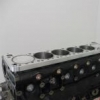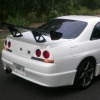Increasing CR. Pin Height or Deck.
Announcements
-
Similar Content
-
Latest Posts
-
What do you mean? Can you expand on that?
-
I call bullshit / AI generated. Pete has never been ready for a track day 3 days early.
-
That is the epitome of how it's done! Rolling around in a Q7, draggin a dirty old Datsun around! Have fun! I've gifted myself an SQ7 demo at the moment. V8 twin turbo perfection. I may or may not still have a licence when I go to hand it back. I'm not going to enjoy when I have to park it and get back in the Amarok.... Post some vids of the beast on the track!
-
I actually have a set of these. They didn't do the trick for track use (but were more than appropriate on the road) for my previous 8 pot/R33GTST kit. I have a 370z kit now and they actually seem damn fine on the street, like _really_ happy with them on the street, enough that I may have actually been confident enough with them for light track if you have a lighter car and don't overbrake like I do. I'm on the fence and have Project Mu club racer pads, which feel much the same on the street - There may not be that much in them. So FWIW I didn't use them on track (and probably won't) but they are WAY more than anyone ever needs for any kind of road use or motorkhana or drag or drift or something like that.
-






Recommended Posts
Create an account or sign in to comment
You need to be a member in order to leave a comment
Create an account
Sign up for a new account in our community. It's easy!
Register a new accountSign in
Already have an account? Sign in here.
Sign In Now